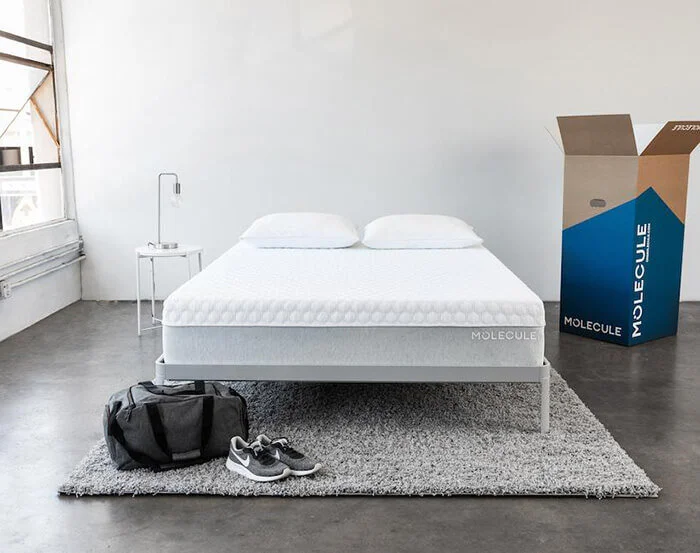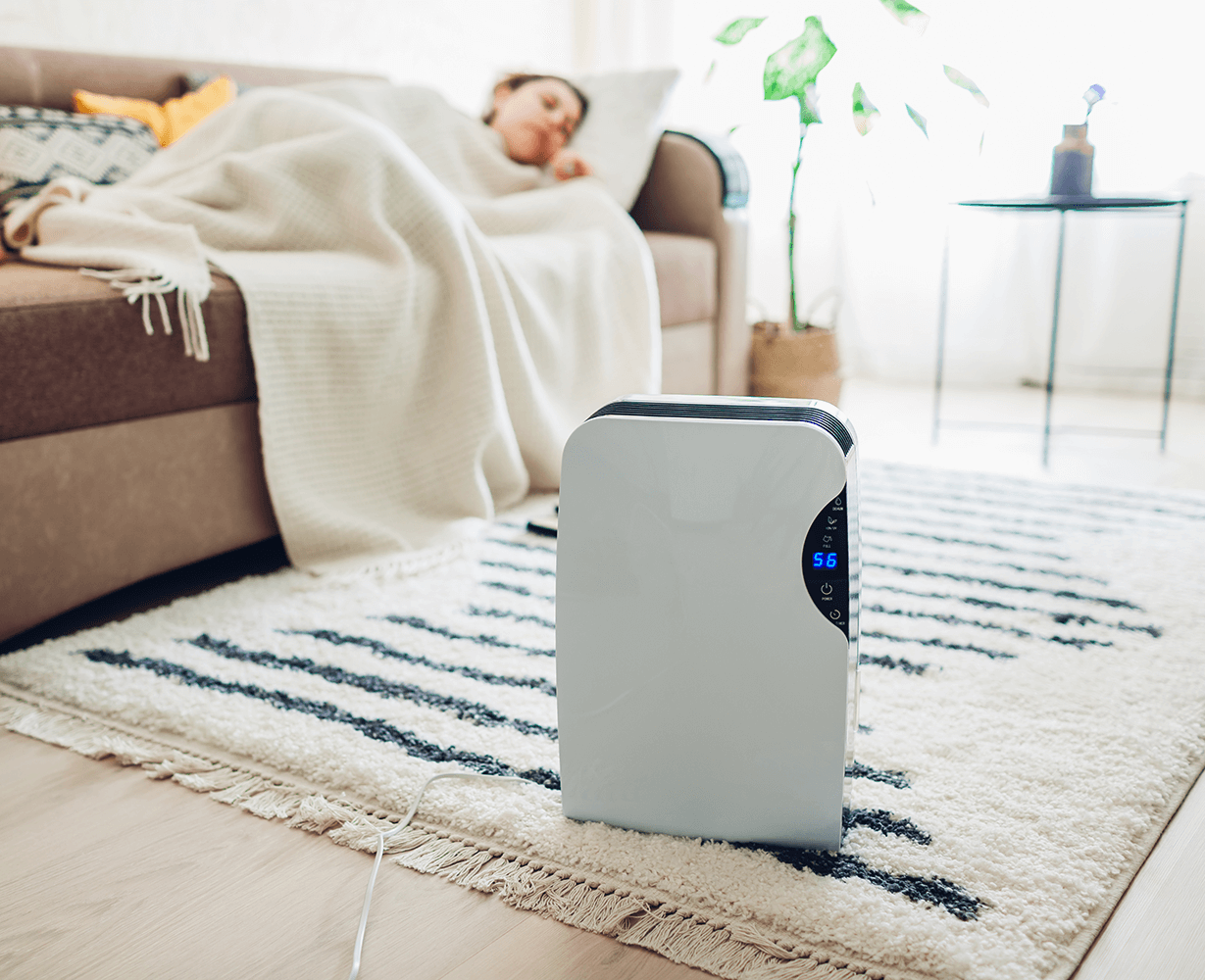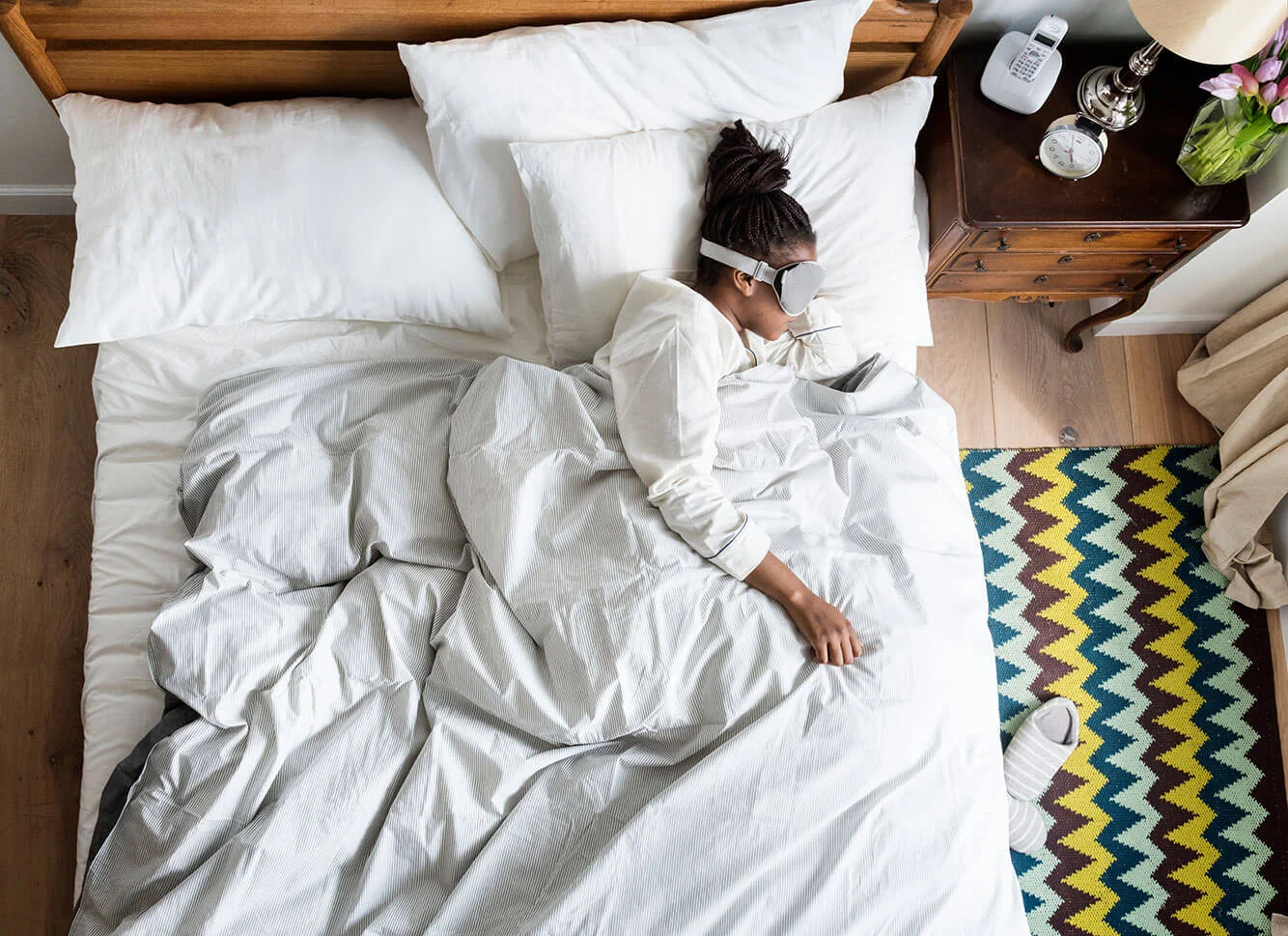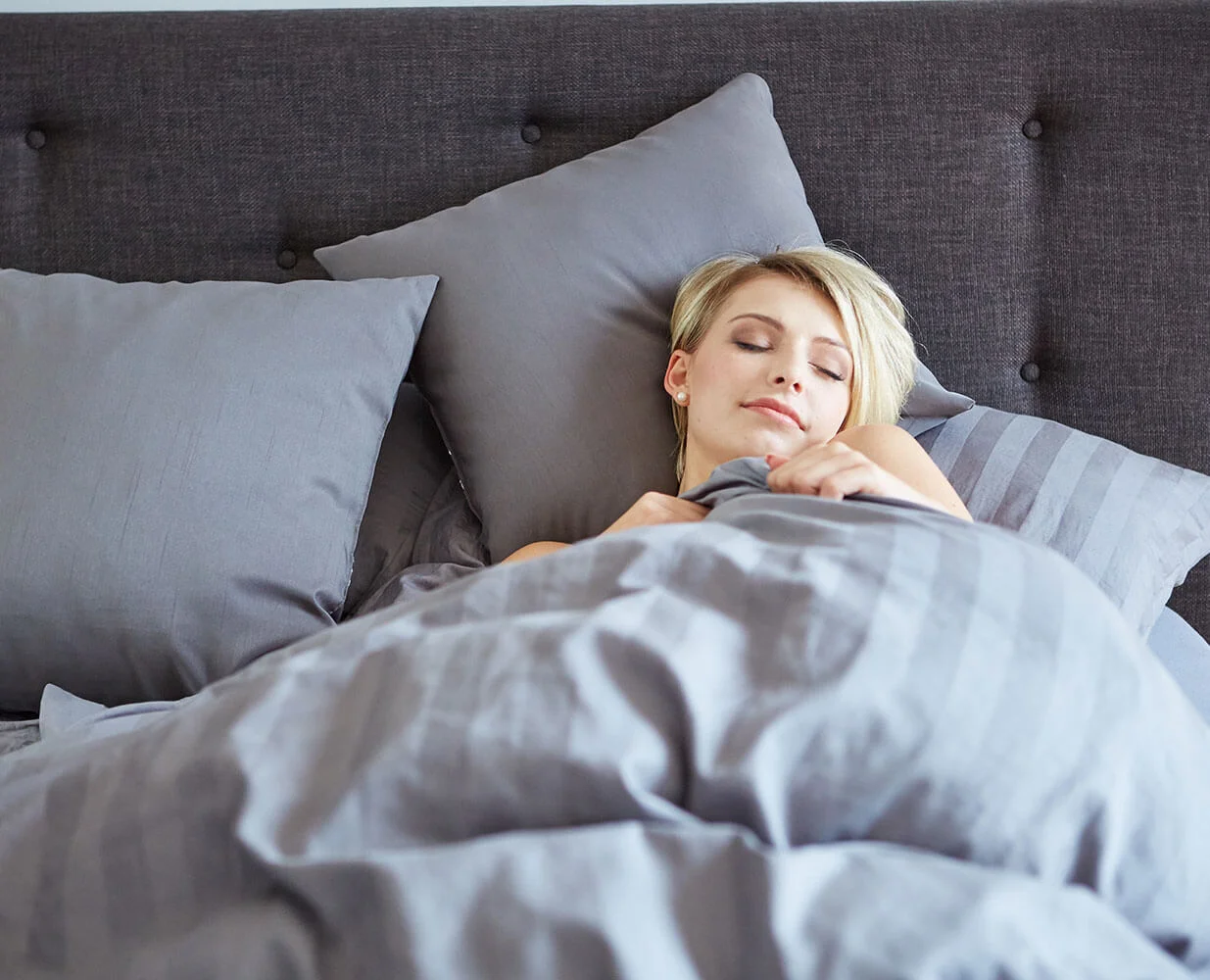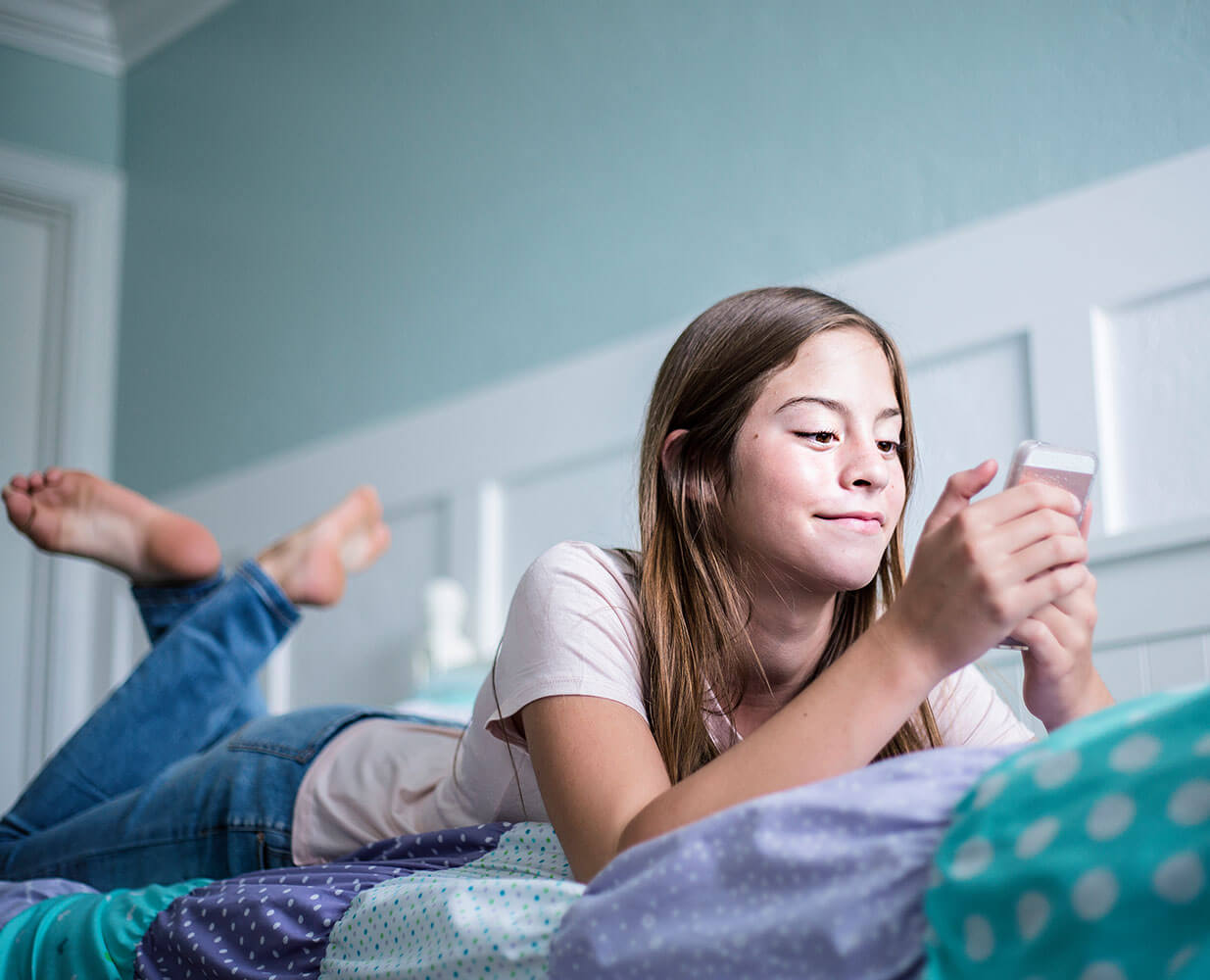How Does Drinking Water Impact Your Sleep Quality?
Ensuring a good night’s sleep involves more than just getting into bed—it’s about practicing proper sleep hygiene. Sleep hygiene includes your bedtime routine, the sleep environment, and even habits like napping or taking supplements.
Many people include drinking water as part of their nightly routine, whether it’s to stay hydrated or to take a melatonin supplement before bed. But how does drinking water impact your sleep? Is it truly beneficial for your rest, or could it disrupt your sleep hygiene?
In this guide, we’ll explore the relationship between hydration and sleep quality, answering the question: Can drinking water improve sleep, or is it better to skip that last sip before bed?
Is Drinking Water Before Bed Healthy?
Can Drinking Water Help With Sleep
You already know that it’s absolutely imperative to keep your body hydrated. The average adult needs between 30 and 50 ounces of water per day, and that amount could actually be more depending on your activity level, the climate in which you live, your medical conditions and more.
Water is essential to your body for many reasons. You need to stay hydrated so that your organs work properly. Hydration is important to your digestive tract. Of course, staying properly hydrated also helps keep you looking healthy – your skin, your hair and your overall appearance will benefit.
With that in mind, we should strive to stay hydrated throughout the day. Sometimes, though, at the end of the day a glass of cool water feels like just the thing you need to wind down and relax before rest.
You may feel that final drink may also help to keep you hydrated throughout the night. Do you really need it, though? Researchers have looked into the habit of that nighttime glass of water, and have begun to question whether it’s a good idea.
The most important aspect of your sleep hygiene is priming your body and your surroundings for uninterrupted slumber. That means keeping your bedroom environment cool, your ambient light conducive to sleep, and your bed and bedding natural and free from toxins. It also means that you should limit the external factors that could wake you up in the middle of the night.
Examples of this include:
Loud and sudden noises, such as pets or traffic
Blood sugar fluctuations due to eating or drinking alcohol
Drinking large amounts of water before you go to sleep!
When you engage in activities that impact your natural sleep cycle, you’re damaging your sleep hygiene. That, of course, is detrimental to your overall health.
Water and Your Sleep Cycle
Water and Your Sleep Cycle
The biggest way drinking water before bed impacts your sleep cycle is quite obvious. When you drink large amounts before bedtime, you’re more likely to feel the need for a midnight trip to the bathroom. Your body naturally decreases the amount of urine you produce at night.
That’s nature’s way of letting you get a healthy amount of sleep – for most adults, that’s between 7 and 9 hours. When you drink water (or other fluids) before bed, you run the risk of disrupting this natural cycle.
Of course, there are factors that may affect different people’s sleep cycles. For instance, if you’re older, you may have an increased tendency to make that midnight trip. Certain medications, like diuretics, can also increase the frequency of bathroom trips. Medical conditions like an overactive bladder can cause you to use the bathroom, and even pregnancy will likely disrupt your sleep!
Your body was designed to remain hydrated throughout the night without pre-slumber hydration. But it’s interesting to note that water and your sleep cycle are cyclical. When you drink water before bed, you may feel as if you’re hydrating properly. However, if this causes you to wake at night, that disrupted sleep can actually lead to dehydration!
Your body releases a hormone called vasopressin, which is an anti-diuretic hormone. In simple terms, this hormone keeps you from feeling the need to urinate. It’s your body’s natural defense against dehydration, and it’s released in higher amounts overnight when you’re asleep. When you wake at night, that triggers your body to lower production of vasopressin.
That, in turn, can lead to dehydration. As you know, dehydration impacts your kidneys, your heart, your brain function and your digestion. To put it another way, interrupted sleep is bad for your overall health!
The Benefits of Drinking Water Before Bed
The Benefits of Drinking Water Before Bed
We’re not telling you to skip drinking water before bed. To the contrary, if you don’t have a tendency to wake at night due to a full bladder, there’s nothing wrong with a few ounces of water with some melatonin, or just to relax you.
This is especially true if you’re not in the habit of staying hydrated during the day – a few sips of water won’t hurt.
We do not, however, recommend that you use bedtime to “catch up.” As noted, adults who are healthy will need between a liter and a liter and a half of water each day to stay properly hydrated. If you’re approaching bedtime and find that you’ve only had ten ounces today, it’s not the time to play catchup!
Instead, just take a few sips of water and plan to be more diligent tomorrow.
Water and improved mood
Water and improved mood
There are benefits to drinking water before bed, provided the habit doesn’t cause you to wake at night. A study conducted in 2014 showed that drinking ample water actually improves your mood. That’s true for water consumption during the day, but can also impact your sleep.
Subjects who normally drank the recommended amount of water each day were grumpier, less calm and more agitated when they weren’t permitted to drink as much. Those subjects who were accustomed to a low intake of water were happier and more readily able to rest when they were given increased amounts of water!
The practical implication for you is this: if you toss and turn while you’re trying to get to sleep, a glass of water may be just what you need! Why not try this healthy alternative before you try over the counter sleeping pills?
Water and your body’s natural processes
Water and your body’s natural processes
You already know that water is essential to the cleansing of your body. It assists your kidneys and liver in detoxing and removing chemicals and unwanted substances from your body. Water helps you sweat, a very healthy mechanism.
Additionally, water helps your body regulate its temperature naturally. If you sleep hot or sleep cold, staying hydrated may help prevent instances where you wake at night due to an uncomfortable temperature. Finally, a well-hydrated body is less likely to suffer stomach and muscle cramps than a dehydrated one.
As you can see, there are certainly benefits to drinking water before bed! So long as doing so doesn’t impact your natural sleep cycles, your medications or your medical conditions, there’s absolutely no harm in taking a few sips before you go to bed.
The Cons of Drinking Water Before Bed
The Cons of Drinking Water Before Bed
No sleep strategy is perfect, and there are cons to drinking water before you go to bed. The main “con,” as you already know, is a trip or two to the restroom when you’d rather be curled up in your soft bed. If you’re prone to waking at night to use the bathroom, you may reconsider drinking water before bed. However, before you do so, we do recommend that you speak to your doctor, as there are quite a few causes.
The condition that causes you to get up and use the bathroom at night is called nocturia. There are several reasons you may experience this, and drinking water before bed isn’t the only one.
What is nocturia?
As we stated, nocturia is the condition in which you get up at night to use the bathroom. Now, that doesn’t mean that if, every now and then, you wake up you suffer nocturia. However, if you frequently feel the need to urinate, we strongly recommend you speak to your doctor.
There are many conditions and factors that can cause this disorder. Some are quite serious, so medical attention is a good idea. Causes of nocturia include:
What is nocturia?
Pregnancy
Diabetes, including undiagnosed diabetes
Congestive heart failure
Edema (swelling)
Medications you take
Hormone imbalance (especially vasopressin, but others as well)
Bladder disease or cancer
So you see, there are many reasons you may be waking, and water may not be an issue for you at all. Generally speaking, some of these conditions will also cause you to produce excessive urine during the day, too. Even if this isn’t true for you, we advise you to chat with your doctor if you’re suffering from nocturia. Together you can rule out any underlying health concerns.
What Is the Best Time to Drink Water?
What Is the Best Time to Drink Water?
The best time to drink water depends largely on you and your lifestyle. For instance, if you’re an athlete your water consumption schedule will differ from someone who works at a desk. However, the short answer to this is simple: throughout the day. That said, a great time to drink water is as soon as you wake up in the morning. As you slept, you lost water through sweating, breathing and digestion, and now it’s time to replenish it. Drink a glass or so of room temperature or semi-warm water in the morning to help flush toxins and jump start your brain and body.
It’s a good idea to drink a glass of water around 30 minutes before you eat each meal, as well. Water aids your digestion, and has the added benefit of helping make you feel more full. This lessens your likelihood of overeating. If you work out, drink water before, during and after you exercise. Talk to your doctor or personal trainer about the exact amount of water you need, but do be sure to carry a BPA free water bottle with you as you make the circuit at the gym.
Take sips – not gulps – as you work out to keep yourself hydrated. Finally, if you feel fatigued during the day, or hungry when it’s not meal or snack time, feel free to try a glass of water! Water can boost the flow of oxygen to your brain, giving you a bit more pep. Furthermore, sometimes when people are thirsty, the feeling is mistaken for hunger, so try water first!
What Should I Drink Before Bed?
If you’ve gotten into the habit of drinking water before bed but want to cut back, there are alternatives. There’s no guarantee that these alternatives won’t wake you up, but talk to your doctor or nutritionist about experimenting with them in your bedtime ritual.
Warm milk
Your mama told you so – warm milk is great for helping you fall asleep. Calcium and tryptophan in this classic insomnia remedy are responsible for its efficacy.
Chamomile tea
Chamomile contains an antioxidant called apigenin, which decreases anxiety and helps promote sound sleep. A cup of chamomile 60 to 30 minutes before bedtime could help you rest easy.
Peppermint tea
Admittedly, chamomile tea isn’t the most flavorful of the herbal blends. Peppermint tea can help give you the same benefits of chamomile with a little more taste. It can also help soothe your belly.
Cherry juice
Of all the bedtime drinks, we think this is our favorite. Cherry juice is tart, and many view it as a “pick me up” but the fruit has a surprising ingredient: melatonin. Cherries and cherry juice can naturally help regulate your sleep-wake cycle because of the melatonin content, so try a few ounces before bed.
Commercial herbal blends
Visiting the grocery store, you’ll see that there are dozens of blends of teas that are designed to promote sleep. Depending on where you live, the brands and blends may vary, but look for teas that contain:
Chamomile
Lemon balm
Passionflower
Lavender
Valerian
What Should I Avoid Drinking Before Bed
What Should I Avoid Drinking Before Bed
The list of drinks you should avoid before bed is relatively short, and quite obvious. In fact, it’s a list of two items:
Anything containing caffeine
Anything containing alcohol
Both can disrupt your sleep and, as you now know, can lead to health problems and dehydration in the long run.
Find The Perfect Balance of Drinking Water and Sleep On Your Organic Mattress
We’re not going to tell you whether you should or should not drink water before bed. Science shows that there are pros and cons to drinking water before bedtime. If you find the habit relaxes you, and it doesn’t impact your sleep, go for it! However, we do suggest that you talk to your doctor about your sleep hygiene if you have any questions or concerns. Particularly if you find yourself waking at night to use the bathroom, it’s a good idea to chat with a physician to rule out health concerns and conditions. If you choose not to drink water before bed, you certainly have many tasty alternatives! Talk to your doctor, choose one you like and create a bedtime routine that works for you!
Lisa Czachowski is a professional social blogger and has worked on several online publications including Citrus Sleep. Lisa is an experienced content writer and copyeditor. You will find many of her works throughout CitrusSleep.com that cover a wide array of subjects including sustainability, natural, sleep products, health, fashion and many more. She is passionate about what providing as much information as possible on products you bring in your home and what we wear.
Follow Lisa at Lisa Czachowski









